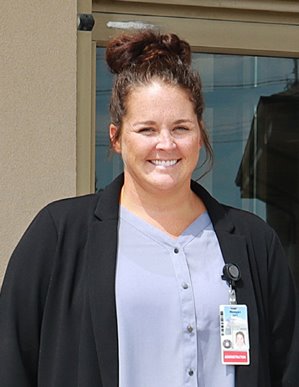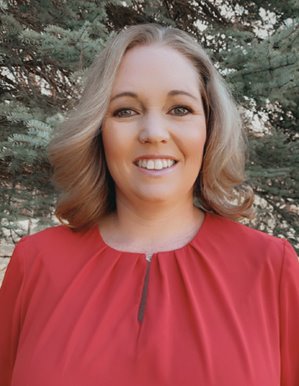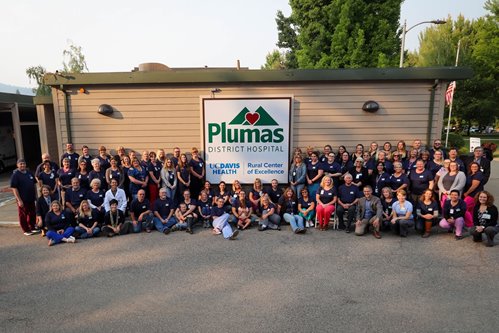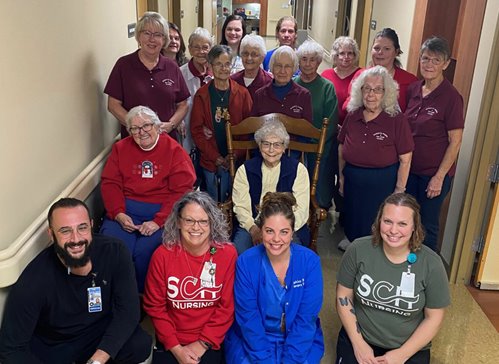How NRHA, USDA are helping rural hospitals
 |
| Meagan Weber |
Through a cooperative agreement with USDA, NRHA offers technical assistance to qualifying rural hospitals across the country like Scotland County Hospital, helping them identify and address health care needs and strengthen the local health care system. Services include improving financial position, implementing quality improvements, and increasing use of telehealth, depending on the unique needs of each facility.
For Weber, the financial guidance she received helped her gain her footing as a new rural health leader and bring the hospital’s revenue cycle back in house, as well as recruit and retain physicians, nurses, and other staff. In the coming year, she looks forward to continued growth.
| "The most meaningful part is hearing the challenges other CEOs are facing in the health care industry and knowing you’re not alone." |
| – Meagan Weber |
At NRHA, Slabach says the technical assistance program is a hands-on way for the association and USDA Rural Development to bolster struggling rural facilities, which benefit from a consultation tailored to their specific rural needs. More than a year after Scotland County Hospital’s initial strategic, financial, and operational assessment, Slabach says the critical access hospital is reporting a significant turnaround with positive operating margins.
 |
| JoDee Read |
Another piece of the technical assistance puzzle is giving rural hospital CEOs the opportunity to participate in NRHA’s Rural Hospital CEO Certification Program, a ruralspecific leadership training course developed by successful rural hospital CEOs. According to Center for Rural Health Leadership CEO Bill Auxier, the program’s primary benefits, which are provided in partnership with NRHA, include enhanced confidence, access to resources, and network building, with certifications also available for other C-level rural hospital executives and staff.
| "I’ve always said CAHs have the same strengths and weaknesses simultaneously in being nimble and lean – some days that’s a real strength and some days it’s not." |
| – JoDee Read |
At Plumas District Hospital in Quincy, Calif., CEO JoDee Read found connecting with other rural hospital CEOs to be vital for her growth and efficacy as a leader. Like many CAHs, Read’s facility has faced financial struggles and had to close its obstetrics unit two years ago, forcing health care leaders to find other ways to care for pregnant patients. Having participated in the Rural Hospital CEO Certification Program’s first cohort, Read knew where to turn to find guidance as she navigated this tough transition. She also appreciates the chance to share her own success stories and human resources expertise with other CEOs.
 |
| Plumas District Hospital staff |
As NRHA’s certification programs prove, sharing knowledge and resources is vital to rural hospital success. Auxier reports that program participants report a tremendous boost in confidence, especially in their financial performance – and that is also the case with NRHA’s other programs for CNOs, CFOs, CMOs, HR directors, board trustees, and rural nurses.
| "There are 453 rural hospitals at risk for closure nationwide, and over 43 percent of rural hospitals are losing money on operations." |
| – Brock Slabach |
“The certification program will expand your knowledge base and make sure you have a strong sense of why you’re in this position and why you do this work,” Read adds. “It’s lonely at the top of every organization, and you need to know you belong. It gives you lessons you can apply in your work and allows you to share your successes. I think it’s important to get that kind of validation as humans and especially as rural leaders, because there’s no other place to get that.”
 |
| Scotland County Hospital Auxiliary and staff |
“The most meaningful part is hearing the challenges other CEOs are facing in the health care industry and knowing you’re not alone,” Weber says. “We all have some of the same difficulties. Being able to discuss and talk about solutions with others is very meaningful because sometimes they think of a strategy you hadn’t considered. Having discussions with them each week has been very helpful.”
| "Increased confidence in leaders usually leads to increased organizational performance, and that’s exactly what we need to provide greater health equity in rural America." |
| – Bill Auxier |
“We’re really excited to become a success story so we can get out there and share it with people,” she says. “I love to do things right once and then be able to talk about it and share it with my peers and colleagues to see them have the same success we did. We are really excited and looking forward to diving into it.”
Find your way with NRHA
According to NRHA CEO Alan Morgan, leadership is the biggest predictor of a rural hospital’s success. To participate in-depth analysis, discussion, advocacy, and policy production with stakeholders from across the country, consider becoming an NRHA member today.
Learn more about NRHA and USDA’s technical assistance opportunities for rural hospitals and find out if your hospital qualifies.
Learn more about NRHA’s Center for Rural Health Leadership’s Rural Hospital Certification Programs for CEOs, CNOs, CFOs, CMOs, HR directors, board trustees, and rural nurses and apply for upcoming cohorts.
